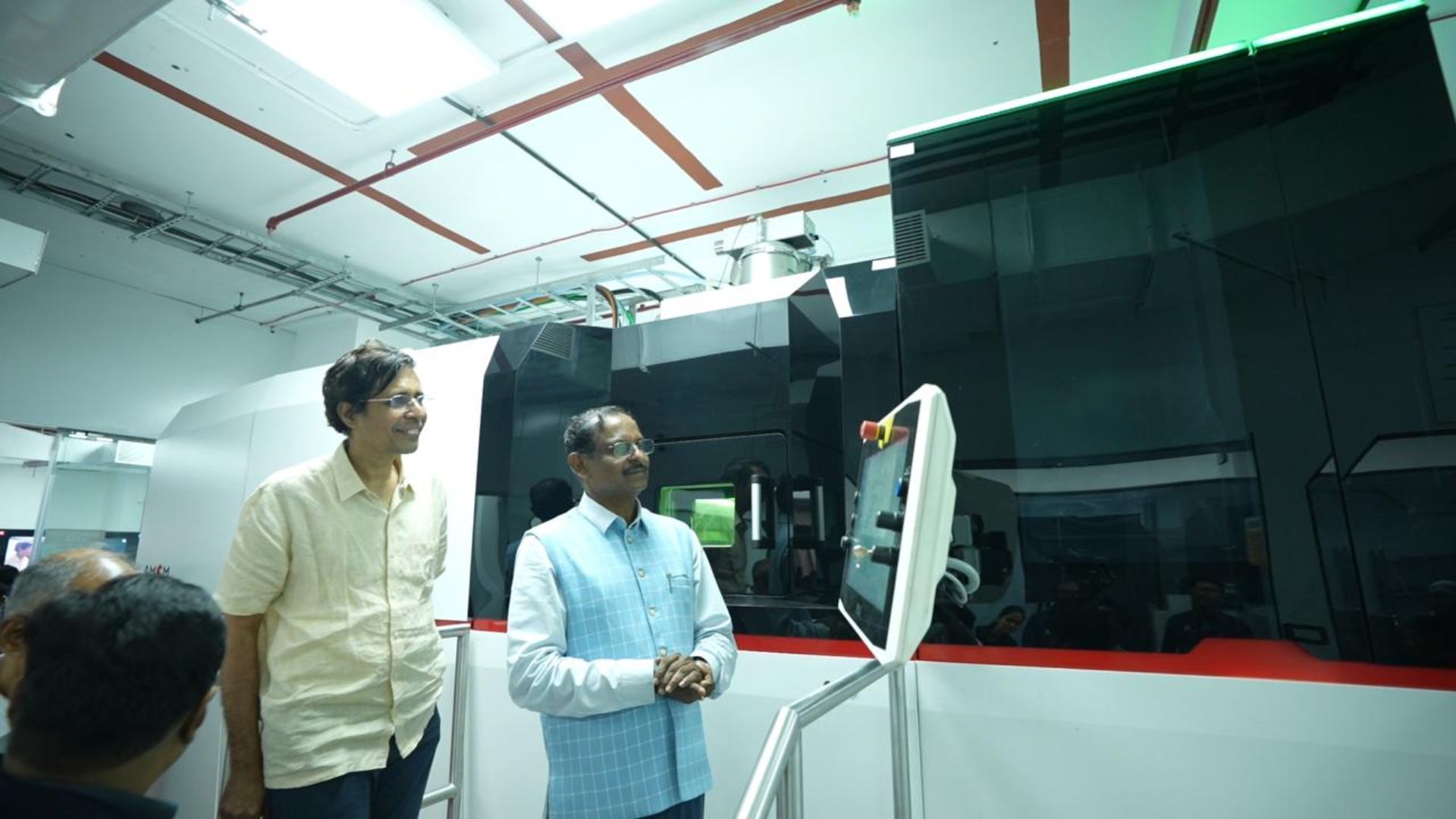New Delhi: Chennai-based New Space Startup has inaugurated a new end-to-end Large Format Additive Metal Manufacturing (LFAMM) unit, housing the largest 3D printer in the country, as well as an indigenously developed de-powdering machine designed specifically for repeated processing, providing an aerospace-grade finish to the 3D printed components. The inauguration was conducted in the presence of ISRO Chairman V Narayanan, Director of IIT Madras V Kamakoti and other distinguished guests. Agnikul Cosmos has partnered up with a global leader in 3D printing, EOS for entirely manufacturing its Agnite and Agnilet rocket engines in-house. The facility includes an EOS M400-4 3D printer.
Cofounder and chief executive officer of Agnikul Cosmos, Srinath Ravichandran said, “Agnikul was started with the goal of making space available to everyone. One way to do that is to build capability that allows us to advance rocket manufacturing with precision while also focusing on quality products. By developing not just printing capacity but also full-scale machines in-house, we are equipping ourselves to build space transportation systems faster, bringing us one step closer to taking Agnikul’s innovations and our customers to space.” The capability of rapidly manufacturing rockets will allow Agnikul Cosmos to reach and exceed a launch cadence of a flight every quarter.
The burgeoning market for deploying small satellites
In May 2024, Agnikul Cosmos conducted a suborbital flight of its Agnibaan 3D printed rocket. This was the Suborbital Technology Demonstrator (SOrTeD) test flight, that lifted off from the Agnikul Launch Pad 1 (ALP-1) at ISRO’s spaceport in Sriharikota. Other manufacturers of small launch vehicles are expected to use this launch pad, which is the first private launch pad in the country, which was set up in 2022 along with the associated mission control centre. Agnikul Cosmos is the second private new space company to demonstrate a launch vehicle aimed squarely at the microsatellite and nanosatellite market, with the first being the Vikram-S flight by Skyroot Aerospace in November 2022.
